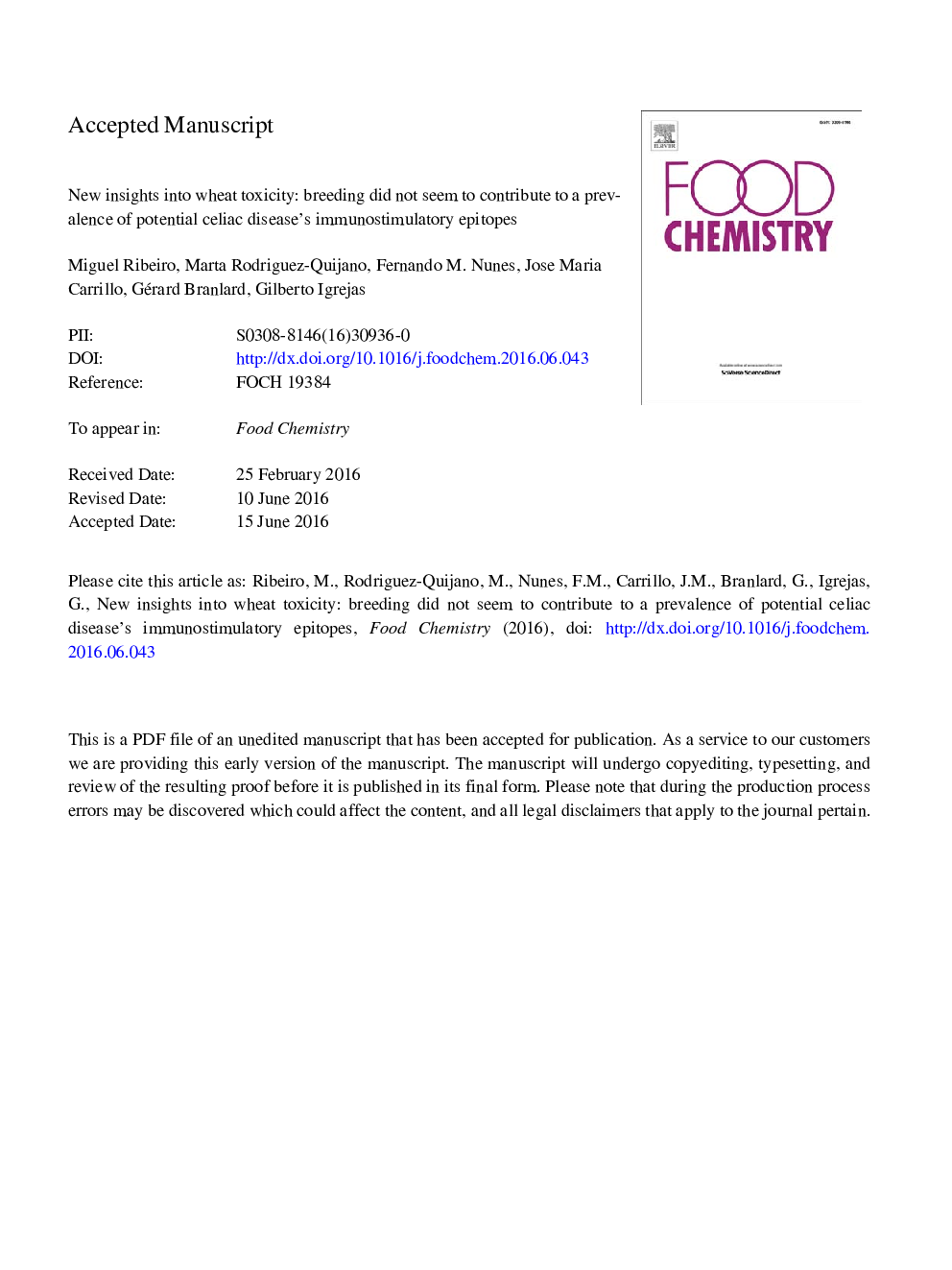| کد مقاله | کد نشریه | سال انتشار | مقاله انگلیسی | نسخه تمام متن |
|---|---|---|---|---|
| 7587114 | 1492079 | 2016 | 37 صفحه PDF | دانلود رایگان |
عنوان انگلیسی مقاله ISI
New insights into wheat toxicity: Breeding did not seem to contribute to a prevalence of potential celiac disease's immunostimulatory epitopes
ترجمه فارسی عنوان
بینش جدید درباره مسمومیت گندم: به نظر نمی رسد که اصلاح نژاد به شیوع بیماری های بالقوه ای از سلول های ایمنی بدن کمک کند
دانلود مقاله + سفارش ترجمه
دانلود مقاله ISI انگلیسی
رایگان برای ایرانیان
موضوعات مرتبط
مهندسی و علوم پایه
شیمی
شیمی آنالیزی یا شیمی تجزیه
چکیده انگلیسی
Gluten proteins, namely gliadins, are the primary trigger of the abnormal immune response in celiac disease. It has been hypothesised that modern wheat breeding practices may have contributed to the increase in celiac disease prevalence during the latter half of the 20th century. Our results do not support this hypothesis as Triticum aestivum spp. vulgare landraces, which were not subjected to breeding practices, presented higher amounts of potential celiac disease's immunostimulatory epitopes when compared to modern varieties. Furthermore, high variation between wheat varieties concerning the toxic epitopes amount was observed. We carried out quantitative analysis of gliadin types by RP-HPLC to verify its correlation with the amount of toxic epitopes: Ï-type gliadins content explain about 40% of the variation of toxic epitopes in tetraploid wheat varieties. This research provides new insights regarding wheat toxicity and into the controversial idea that human practices may have conducted to an increased exposure to toxic epitopes.
ناشر
Database: Elsevier - ScienceDirect (ساینس دایرکت)
Journal: Food Chemistry - Volume 213, 15 December 2016, Pages 8-18
Journal: Food Chemistry - Volume 213, 15 December 2016, Pages 8-18
نویسندگان
Miguel Ribeiro, Marta Rodriguez-Quijano, Fernando M. Nunes, Jose Maria Carrillo, Gérard Branlard, Gilberto Igrejas,
